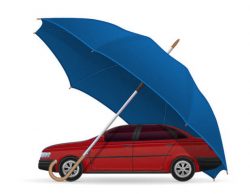Do you have liquid assets greater than the liability limit of your auto insurance or home insurance policy? If yes, you should have umbrella insurance. There are two reasons for this:
- The obvious point of protecting your assets in the event of a law suit.
- The less obvious point is to make sure your insurance company incentivized to protect you. You can do this by having the insurance company on the hook for more money.
Start by finding out how good your current auto and home owners insurance is. Just click the buttons below. Its’ free.
Here’s a more complete explanation of the second point. Lawsuits can be terribly expensive to fight in court. Your insurance company will decide how to defend a lawsuit based on the risk to them. Unfortunately, they are not going to decide how to defend the lawsuit based on your needs. When the insurance company is responsible for a small amount of money, there’s little or no incentive to properly staff a legal defense. That’s the case when there’s no umbrella policy. That’s also the hard reality of insurance. Defending a lawsuit is a business decision for the insurance company.
When Umbrella Insurance Makes Sense
If you have $500,000 or more of liquid assets, you should consider an umbrella policy. Liquid assets are items you own that are easy to sell. Examples of liquid assets include savings accounts, investment accounts and things easily sold.
Buying an umbrella policy makes the insurance company responsible for much more money. In this case, your insurance company is motivated to defend a lawsuit. Now the business decision the insurance company makes is likely to be aligned with what you need.
$500,000 in liquid assets is typically the threshold for buying umbrella insurance because most homeowner and car insurance policies go up to a $500,000 liability limit. If your liability limit isn’t $500,00, use your limit to assess the level of liquid assets that determines if you need umbrella insurance. You can do this easily by comparing your liability limit to your liquid assets. The insurance policy limit needs to be equal to or greater than the liquid assets.
We specifically state “liquid assets” because it’s rare that people lose their home or other non-liquid assets in a lawsuit. If your liquid assets are less than the liability limit, there’s no obvious benefit to umbrella insurance.
Paying Claims Isn’t Automatic
Insurance claims that are small, (less than $10,000) are typically paid with no fuss. Your concern needs to be what happens when a large claim or lawsuit is filed. Unfortunately, large claims are delayed, denied and get unsatisfactory offers with a much greater frequency than small claims.
You may have already clicked the button above showing how good your car insurance and home insurance companies are. If those ratings didn’t give great scores, click the buttons below to find the best auto insurance and best home insurance companies in your state. Switch to one of these companies, then apply umbrella insurance on top of that.
Another Case for Umbrella Insurance
Do you have teen drivers? If so, the odds of an accident in which someone for your family is at fault increases significantly. Accidents where you are at fault are open invitations for a lawsuit. From a personal point of view, when my teen son got his drivers license, I increased the umbrella coverage. He of course tells me that isn’t necessary. It’s true, he is a safe driver (at least when I’m with him). However, I’d rather be safe than sorry.


Comments are closed.